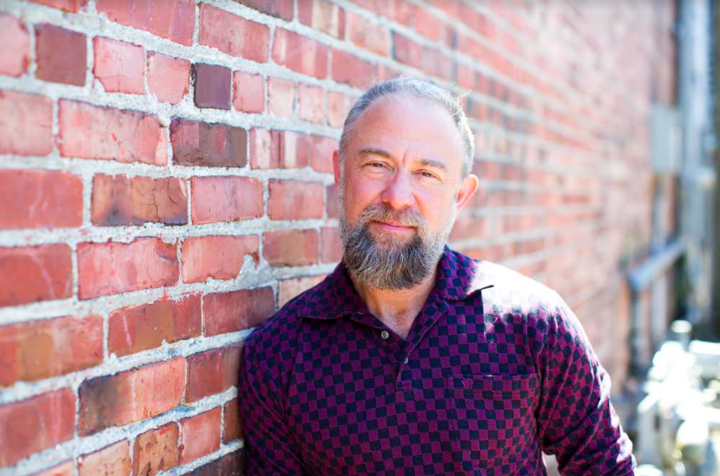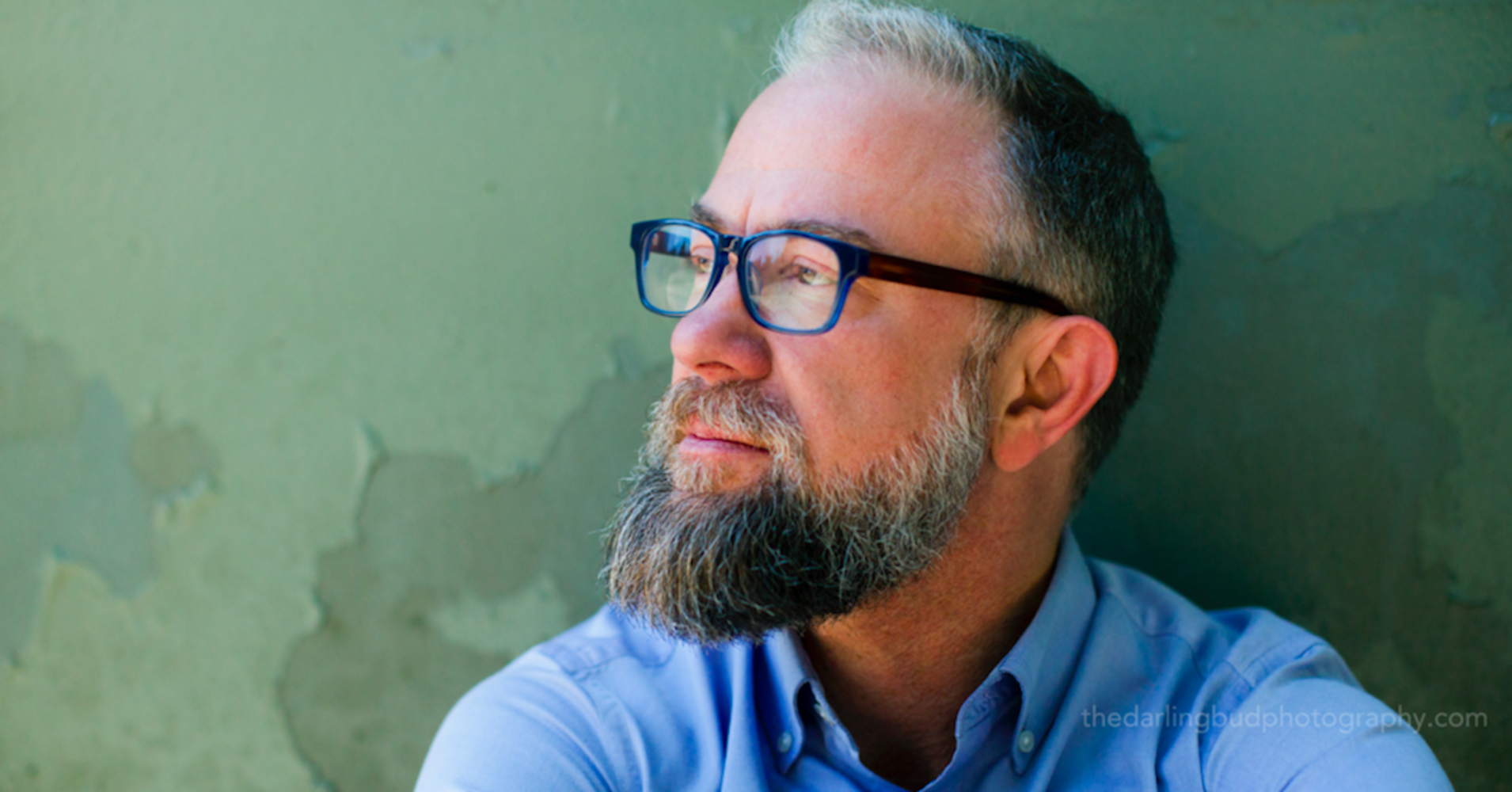[ad_1]
Over 20 years ago, Aidan Key began his own exploration of his transgender identity. Today, he acts a crucial and lifesaving resource for families and children engaged in their own processes of self-actualization rooted in gender identity.
Key is the founder of Gender Diversity, an organization dedicated to providing support, education and training surrounding the experiences of children and gender. Gender Diversity provides an important space for queer kids and families in the Pacific Northwest region of the United States, and also curates an annual conference called Gender Odyssey that brings in gender diverse kids and families from all across the country.
“The first [Gender Odyssey Conference] was in 2001,” Key told HuffPost. “And frankly, my desire to put the conference together was to have these conversations with people and put advice out there to anybody considering doing the same … It was really powerful in that ― two things, you can find some people with shared experience, but also you actually find a whole lot more people with such a distinct ways of coming at it.”
Families oftentimes turn to Key and Gender Diversity when their children begin expressing desires to live as a gender other than the one they were assigned at birth. It can be an isolating and scary experience that needs to be handled with love and compassion ― and Key has helped create a safe space to have these conversations.
In this interview with HuffPost, Key reflects on the rewarding nature of his work and how we as a society can better serve the the needs of gender diverse children.

TheDarlingBudPhotographycom
Can you talk a bit about your work surrounding transgender and gender-nonconforming children? Why is supporting that growth and development so important, but also so inherently personal, to you?
Let me start with the latter part of the question, which has to do with the gender Odyssey conference. I had three families show up to Gender Odyssey [one year]. Three families with teenage trans kids in 2004.
And as the director of the conference, these families, all three of them approached me at different times, some before the conference even started and some during and said, “How do we do this? How do we support our kid? What do we tell them, what do we do?” Really just feeling a bit at a loss. Because I was still busy trying to tell up from down in my own journey and the volatility that I was encountering in life.
I wanted this father to understand that he needed to go out and find information and find answers and resources for his family’s journey, his child’s journey. And he needed to have his eyes wide open. And his ears wide open so that if he was being told things that didn’t seem to fit or seemed a little … I don’t know, that just didn’t fit for his experience, his family’s experience, that he needed to be sure to go and talk to a second person and a third person and really to educate himself.
So all of that I said in a brief moment in 2004, and it’s advice I still give to parents today. Quite a bit later, the landscape has changed pretty significantly and our experts ― we definitely do have some experts, but those are experts simply because they stepped forward and they said, yes, I will work with you. We will figure this out together. On a personal level, in terms of the first time I met these families, the first time I met their children, was deeply transformative.
I don’t know how to describe it. It’s having a living, breathing impossibility standing right in front of you. A 9-year-old trans boy who has complete support from his family to move forward in life. But I naively thought, well, everyone just waits til they grow up. At the earliest, you might find somebody who’s 18. But no way would you ever find anybody under the age of consent, and with families really getting behind them to facilitate that.
What’s the most rewarding part of being engaged in this work for you?
As a result of these families coming into my life and their kids, of course the one powerful aspect is watching the adult, watching these parents, transform. Watching them go from fear, grieving, anger, all that, to ultimately to a place of celebration. But as soon as they do, as soon as they have that internal shift or start to have it, their next thought goes to, how do I send my kid out in the world? How do I send my kid to school? If I’m supporting them, how do I manifest that support outside the front door? And it’s a very huge and daunting endeavor and one that is terrifying for them.
So being able to be one of those people that can help facilitate that is profound. And I’d say specifically with respect to the work with schools, because that requires … what? That requires me to be the best self I know how to be and continue to strive for that, because I need to go into those environments with educators who, first and foremost, are human beings from all walks of life with different perceptions and different beliefs about what transgender people are and different fears. Different levels of willingness or unwillingness, and striking at some of the deepest sources of conflict that one can find.
For someone who maybe doesn’t know quite a bit about transgender experience, or especially as it relates to children, what do you think is the most crucial perspective that our culture really needs to try to wrap their heads around when it comes to trans and gender-nonconforming children? How can we as a society better support the needs of these young people?
Let’s see. We have to be willing to examine what we still think is fixed and immutable. And that is our previous understanding of gender. We have collectively had this handshake agreement that gender is about being men and about being women, about being girls and about being boys. And that there’s a significant divide between them and that there’s, while there’s latitude with how we express our gender, that fixed line.
Our younger generations are not invested in that line at all. It does not work for them and they’re articulating that faster than we can possibly keep up with. And in general I would say that a lot of our younger students, they don’t realize how entrenched we are, we of certain generations are, in that. And that that is one of the most significant challenges we have today in terms of how do we as adults support these children and teens.
Because if we can’t fathom … if we don’t have the same framework, we’re speaking different languages with no translator. So that’s one thing that I think if we as a society can recognize, actually take a look at the studies that we know about gender, that are coming about. Being willing to take a look and say, “Oh, I guess we have a lot to learn.” And what’s been discovered in the last decade or two is significantly different than what many of us grew up understanding.
If we can just be willing to take a look at that, fantastic. Just because something feels scary doesn’t mean it’s something to be scared of.
What does Pride mean to you in 2018?
I guess where my brain went first and foremost is it actually means more about having courage. To be part of a movement. And I have had some incredible mentors in my life from my lesbian community who absolutely have struggled and some still struggle with my path, with respect to gender. But it doesn’t mean that I’m still not trying to follow in their footsteps.
When they taught me how to be courageous at a particular moment in time, and the pride that they have for the scary situations they’ve navigated. How they stood on their feet, how they found their core of authenticity, is what I draw from on a regular basis. It’s powerful to be part of a social change movement, especially at this particular moment in time. I think specifically, with respect to this year and our particular political climate, I do not have the luxury to be afraid.
I don’t have the luxury to be afraid for very long if it does come up. It is really the time to actually move into the love and compassion arena to evoke the change. There’s all types of ways to make change and I think all are important and at different times and for different people’s styles and interests. But as far as what I need to do, it’s about really stepping up and having that love and compassion for a society that’s hurting.
And if I can do it, then these kids benefit.
This interview has been edited and condensed for clarity.
For LGBTQ Pride 2018, HuffPost is highlighting 30 different cultural influencers ― like Lea DeLaria ― who have shifted the narrative when it comes to queer issues and whose work has contributed to building a more inclusive and equitable future for us all.
#TheFutureIsQueer is HuffPost’s monthlong celebration of queerness, not just as an identity but as action in the world. Find all of our Pride Month coverage here.
[ad_2]
Source link

